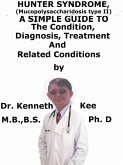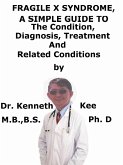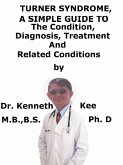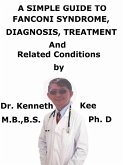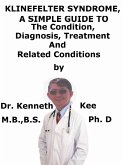In Singapore Lynch syndrome has an estimated incidence of 1 in 300 in women and 1 in 500 in the general population.
People who have Lynch syndrome have a considerably higher danger of forming:
1. Colorectal cancer (CRC),
2. Endometrial (uterine) cancer,
3. Gastric (stomach) cancer,
4. Ovarian cancer,
5. Small bowel (small intestinal) cancer,
6. Pancreatic cancer,
7. Urinary tract cancer (bladder or ureter cancer),
8. Kidney cancer,
9. Bile duct cancer,
10. Certain skin tumors (sebaceous tumors of the skin or sebaceous adenomas), and
11. Brain tumors.
People with Lynch syndrome may also be at slightly higher risk of:
1. Breast cancer and
2. Prostate cancer.
The old term for Lynch syndrome was "hereditary non-polyposis colorectal cancer" (HNPCC).
There is no likelihood toward polyp formation and hence the name HNPCC.
It is the most frequent genetic syndrome linked with a higher vulnerability to Colon cancer.
Patients with Lynch syndrome have a 60%-80% risk for Colorectal Cancer (CRC), as well as a higher risk for cancers, most conspicuously endometrial cancer
Endometrial cancer is the second most frequent malignancy in Lynch syndrome with a lifetime danger between 40% and 60%, often happening before Colorectal Cancer (CRC) in females.
The average age for colorectal cancer to be diagnosed in a person with Lynch syndrome is 45 in contrast with the average age of 72 for a new diagnosis of colorectal cancer in the general population.
In Lynch syndrome, colorectal cancer is rather more likely to form on the right side of the colon.
Cause:
Lynch syndrome is a genetic disorder, indicating that the cancer risk can be passed from generation to generation in a family.
Several genes have been identified that are linked to Lynch syndrome.
They are MLH1, MSH2, MSH6, PMS2, and EPCAM.
A mutation (modification) in any of these genes causes the person to have a higher lifetime danger of forming colorectal cancer and other related cancers.
Women also have a higher risk of forming endometrial and ovarian cancers.
Making the diagnosis of Lynch syndrome is normally a 3-stage process, such as:
1. Review of the family cancer history,
2. Tumor testing, and
3. Genetic testing
Lynch syndrome, autosomal dominant inheritance disorder, can also be established through a blood test.
The test can detect if someone has a mutation in one of the genes linked with Lynch syndrome.
Presently testing is provided for the MLH1, MSH2, MSH6, and EPCAM genes.
For patients who have a family history that indicates Lynch syndrome, screening tests can be done on tumor (cancer) tissue to help detect if Lynch syndrome is possible.
The two screening tests indicated are micro-satellite instability testing (MSI) and immuno-histo-chemistry testing (IHC).
The results of these tests can show whether more specific genetic testing should be done.
Treatment:
Removal of the entire colon is the only way to completely avoid the development of colon cancer or to treat a present colon cancer.
1. Subtotal colectomy with ileorectal anastomosis
2. Total colectomy with ileoanal pull-through (pouch procedure)
3. Total colectomy with ileostomy
Subtotal colectomy with ileo-rectal anastomosis and post-surgical rectal surveillance are advised when colorectal cancer forms in patients with Lynch Syndrome.
This surgery may be regarded for prevention in selected mismatch repair (MMR) gene mutation carriers.
Prognosis
The 5-year survival rate in patients with Lynch Syndrome is evaluated to be about 60%, compared with 40-50% for sporadic cases (normal colorectal cases).
TABLE OF CONTENT
Introduction
Chapter 1 Lynch Syndrome
Chapter 2 ...
Dieser Download kann aus rechtlichen Gründen nur mit Rechnungsadresse in A, B, CY, CZ, D, DK, EW, E, FIN, F, GR, H, IRL, I, LT, L, LR, M, NL, PL, P, R, S, SLO, SK ausgeliefert werden.



